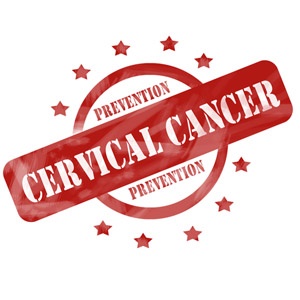
These are frightening numbers, especially as we have the tools to prevent the vast majority of these cases. As with many health interventions though, getting them out there, and getting people to make use of them, is a whole different problem.
Professor Lynette Denny of the Gynaecology Oncology Unit at the University of Cape Town describes cervical cancer as "a disease of inequity of access to health care".
This is underlined by the fact that 80% of new infections and deaths occur in the developing world, where it is the most common cancer in women. For example, in Spain, the incidence rate is 3,7 cases per 100 000 women, while the rate in Zimbabwe is 54,3 per 100 000 – more than 14 times higher.
In South Africa, the lifetime risk of developing cervical cancer for black women is 1 in 26, compared to 1 in 80 for white women, says Denny. The disease claims more than 3 400 South African women every year, according to the Cancer Association of South Africa (Cansa).
The screening shortfall
The frustration is that, if picked up early, cervical cancer treatment has a very high success rate. Thus, screening programmes form a key defence against the disease.
"In the developed world, mass pap smear-based screening programmes, both organised and not, have rendered cervical cancer a relatively rare disease," says Denny. By contrast, virtually no developing countries have managed to initiate or sustain screening programmes, she says.
Amongst other things, Denny says, this lack of efficient screening is a result of:
- limited financial, human and capital resources,
- inadequate health care infrastructure,
- the fact that cervical cancer has to compete for resources with diseases like HIV/Aids, malaria, and tuberculosis, and
- that some developing countries are plagued by endemic civil strife, war, environmental instability and widespread poverty.
In addition, issues around shame and stigma relating, for instance, to things like unusual vaginal discharge, often keep women from seeking help until it is too late to effectively treat the cancer.
How it works in SA
In South Africa, every woman is entitled to three free pap smears on the public health system, at ages 30, 40, and 50. This screening regime is predicted to reduce cases of cervical cancer by 67%. (Were budgetary issues different, and every woman was screened annually for 30 years, it is estimated that rates would drop by 93%.)
So far, says Denny, even the implementation of the existing finite screening programme has been "patchy". Cansa agrees: less than 20% of women in South Africa have ever had a pap smear, it says. Though it is now being prioritised in most provinces, Denny calculates that an estimated 5-million smears need to be performed to catch up the backlog.
The situation may be relieved because the way screening is done may change drastically over the coming years. While current DNA-based tests are expensive in the context of public health budgets and priorities, new ones are being developed that may be both faster and more affordable.
In addition, visual inspection methods also show promise where no other screening is available.
Expensive but effective
The recently launched vaccines for strains of the human papilloma virus (HPV), the virus that causes most cases of cervical cancer, have the potential to massively reduce the prevalence of the disease. According to Cansa, the "vaccination could eradicate cervical cancer in time."
Vaccination would be an ideal solution for poor countries, as the infrastructure required to dispense vaccines is less complex than that required by other prevention strategies, says Denny.
"It is estimated that the vaccine will prevent at least 70% of all cases of cervical cancer. We see about 6 500 cases per year, and 50 - 60% of these women die per year," she says.
Thus, the vaccine is expected to prevent at least 4 550 infections per year in South Africa and save an estimated 2 300 lives annually.
The price to pay
As Cansa points out, though, the vaccines are so expensive that it is widely felt to be unlikely that they would be provided by public health systems in developing countries any time soon.
Currently, two vaccines are registered in South Africa - Merck's Gardasil and GlaxoSmithKline's Cervarix. The private sector price for Gardasil is R770 (excluding VAT) per unit. Since the vaccine has to be injected three times, the total cost is R2 310. Cervarix is slightly cheaper at R700 per unit, or R2 100 for the course.
Cansa has been campaigning for a vaccine in the public health system, and estimates that about 300 000 South Africans should be vaccinated every year, which works out to about R630-million per year at current costs.
With economies of scale and special prices for emerging economies, Cansa points out, the vaccine price could drop to about R1 000 per person, which would amount to about R300-million per annum.
According to Merck, there have not been any negotiations with government regarding special prices for the public sector. They did, however, say that they are "working with a range of partners, including government and non-government organisations”, to bring vaccines to developing world countries as soon as possible.
Denny estimates it will take another 10 years before a vaccine is widely available in poor countries. "During this time the commercial companies would have recouped their expenditure and made their profits, and hopefully the price will have come down substantially."
But even though cost is an important factor, Denny points out that creating an adolescent health platform in order to target the most important group for vaccination is also a challenge, and will require resources.
- (Marcus Low, Health24, July 2008)




 Publications
Publications
 Partners
Partners















